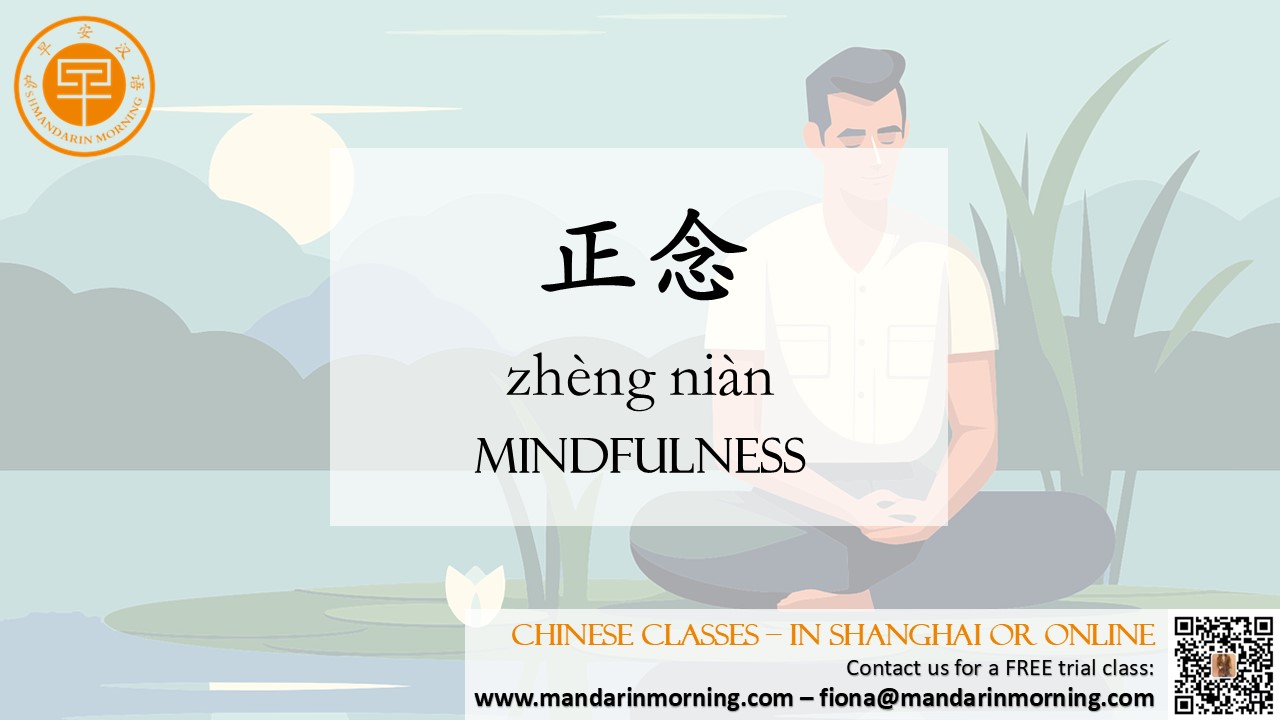| In today's fast-paced world, where technology and constant connectivity can often lead to information overload and stress, the practice of mindfulness has emerged as a powerful tool for enhancing well-being and productivity. Mindfulness (正念, zhèng niàn), the act of purposely focusing on the present moment without judgment, has been shown to have numerous benefits for both mental health and daily performance. This article will explore what mindfulness is, its benefits, and how you can incorporate it into your daily life.  Understanding Mindfulness: Mindfulness is a form of meditation that encourages individuals to be fully engaged in the present, acknowledging their thoughts, feelings, and bodily sensations without judgment. It originates from Buddhist traditions but has been adapted into a secular practice that can be beneficial for anyone, regardless of their spiritual beliefs. Benefits of Mindfulness: Reduced Stress (减轻压力, Jiǎnqīng yālì): Mindfulness can help lower cortisol levels, the hormone associated with stress, leading to a more relaxed state of mind. Improved Focus (提高专注力, Tígāo zhuānzhùlì): By training your mind to be present, you can improve your concentration and reduce distractions. Enhanced Emotional Regulation (情绪调节, Qíngxù tiáojié): Mindfulness allows you to observe your emotions without being swept away by them, leading to better emotional management. Boosted Immunity (增强免疫力, Zēngqiáng miǎnyìlì): Studies have shown that mindfulness can strengthen the immune system, helping your body to fight off illness. Better Sleep (改善睡眠, Gǎishàn shuìmián): Practicing mindfulness before bed can help calm the mind, leading to a more restful night's sleep. Incorporating Mindfulness into Daily Life: Mindful Breathing (正念呼吸, Zhèngniàn hūxī): Set aside a few minutes each day to focus solely on your breath. Inhale and exhale deeply, noticing the sensation of the air entering and leaving your body. Mindful Eating (正念饮食, Zhèngniàn yǐnshí): Instead of eating on autopilot, savor each bite, paying attention to the taste, texture, and aroma of your food. Mindful Walking (正念行走, Zhèngniàn zǒuzǒu): Take a walk and focus on the sensation of your feet hitting the ground, the rhythm of your steps, and the environment around you. Body Scan Meditation (身体扫描冥想, Shēntǐ sǎomiáo míngxiǎng): Lie down and mentally scan your body from head to toe, noting any areas of tension or relaxation. Mindful Listening (正念倾听, Zhèngniàn qīngtīng): Engage fully in conversations by truly listening to the speaker, without planning your response or letting your mind wander. Mindfulness is a simple yet profound practice that can transform your life by helping you connect with the present moment. By making mindfulness a part of your daily routine, you can cultivate a more balanced and resilient mind, better equipped to handle the challenges of modern living. So, take a moment to breathe, to listen, and to be present – the benefits are well worth the investment. |